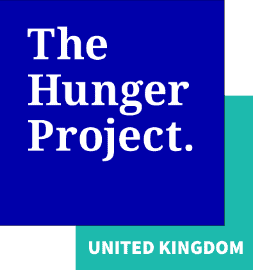 03 October, 2012
03 October, 2012
In 2011, we saw the world make significant progress in areas vital to ending hunger and poverty, including the widespread adoption of women-centred approaches and a strong focus on small-scale farmers, issues for which The Hunger Project (THP) has long advocated.
In January, THP celebrated its first World Hunger Day, with a gala concert at the Apollo Victoria Theatre in London. It featured more than 100 performers, led by international sensation Dionne Warwick, and was attended by 2,000 guests. In March, we celebrated the 100th Anniversary of International Women’s Day and launched our Unleashed Women Leaders Initiative — a multi-year funding programme to focus our attention and resources on the fact that empowering women’s leadership is vital to ending hunger.
 Throughout the year, THP ensured it was in the right global conversations. Tarcila Rivera Zea, Executive Director of Chirapaq — our partner organisation in Peru — was awarded the Ford Foundation’s Visionaries Award, and THP-India was also honoured as winner of the EdelGive Social Innovation Honours in the category of Governance for its work strengthening women’s participation in government. THP actively participated in the 1,000 Days nutrition movement, the United Nations’ Scaling Up Nutrition (SUN) initiative and the U.S. State Department’s Feed the Future initiative. Moreover, in addition to awarding the prestigious Africa Prize to Liberia’s first female Minister of Agriculture, Dr. Florence Chenoweth, we also saw a past Africa Prize Laureate, Ellen Johnson Sirleaf, awarded the Nobel Peace Prize.
Throughout the year, THP ensured it was in the right global conversations. Tarcila Rivera Zea, Executive Director of Chirapaq — our partner organisation in Peru — was awarded the Ford Foundation’s Visionaries Award, and THP-India was also honoured as winner of the EdelGive Social Innovation Honours in the category of Governance for its work strengthening women’s participation in government. THP actively participated in the 1,000 Days nutrition movement, the United Nations’ Scaling Up Nutrition (SUN) initiative and the U.S. State Department’s Feed the Future initiative. Moreover, in addition to awarding the prestigious Africa Prize to Liberia’s first female Minister of Agriculture, Dr. Florence Chenoweth, we also saw a past Africa Prize Laureate, Ellen Johnson Sirleaf, awarded the Nobel Peace Prize.
The year also brought enormous challenges as the Horn of Africa experienced the worst drought the world has seen in 60 years. Thankfully, our village partners were not in affected areas, and THP continued to focus on building local resilience and skills so communities are better able to cope when such emergencies arise.
In this report, we provide some highlights of our work in implementing our bottom-up, gender-focused integrated rural development strategies to end chronic hunger and extreme poverty in more than 8,700 villages across 12 countries in Africa, South Asia and Latin America.
Download the 2011 Hunger Project Global Annual Report (PDF 2.86 MB).
